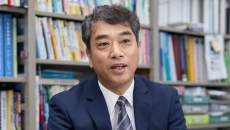- Graduate School of Science and Engineering Top Page
- Overview
- Message from the Dean
Message from the Dean
Future Prospects of the Graduate School of Science and Engineering

Graduate School of Science and Engineering
IDA Junichi
The Graduate School of Science and Engineering aims, on top of the general knowledge acquired during undergraduate programs, to increase the expertise levels of students through a continuous learning approach on disciplines and technology. The two main objectives are:
To foster human resources capable of creating new scientific technologies that will contribute to humanity’s sustainable development, and to foster human resources with flexible problem-solving skills, in order to solve the many global issues, the world is facing.
In order to become “Creative”, cutting-edge knowledge as a foundation is necessary. During the Graduate School of Science and Engineering’s master and doctoral programs, students can extensively learn about many cutting-edge research topics. True creativity is fostered through research activities.
Setting a new, concrete research topic, then analyzing and finding out new discoveries is the logical structure for a scientific research. Experiencing and learning those methods is important. Therefore, the knowledge necessary for new unprecedented discoveries is fostered through those research methods.
Soka University’s Graduate School of Science and Engineering actively encourages students to participate, as well as to present and discuss their research results in national and international academic conferences.
In order to support students, subsidy provided by the Japan Student Services Organization (JASSO) and by Soka University’s Scholarship Program are available. Financial support for travel expenses, transportation, as well as a research assistant program, and a paper publication reward system are all provided by the university.
From this environment, a research system where student and professor can become one was established, generating many research results. For instance, competitive research grants, such as the Ministry of Education, Culture, Sports, Science and Technology’s scientific research grant and the project research grant were earned. In addition, many patent applications and approvals, as well as technology transfers are happening.
The Graduate School of Science and Engineering (former Graduate School of Engineering) began its involvement in advanced research and education in the fields of information systems science and bioengineering in April 1995. This started with the establishment of two master’s degree programs for the university’s Information Systems Science department and its Bioengineering department, and then with doctoral programs from April 1997.
Many graduates of both, master and doctoral programs, have joined research departments of various companies, national laboratories, and universities after attaining their respective degrees.
In April 2003, as the faculty changed its departments to Information Systems, Bioinformatics and Environmental Symbiosis, the graduate school changed accordingly.
From 2020, the department of Biosciences has replaced the old department of Bioinformatics. The new department will promote education and multifaceted research on biological phenomena, including development of methods to promote such research. This change happened at the same time as the Graduate School of Engineering became the Graduate School of Science and Engineering. The Graduate School of Science and Engineering includes the new department of Biosciences, as well as the original departments of Information Systems and Environmental Symbiosis.
Currently, the Graduate School of Science and Engineering has 39 professors and 167 students (44 doctoral program students), which are actively conducting research activities in their related fields. In addition, through academic exchange agreements with more than 210 universities around the world, the number of international students is growing by the years, making our Graduate School a global one.
The university constantly welcomes researchers from abroad, as well as joint researches with international laboratories and educational institutions are also being conducted. Furthermore, the Liaison Office in charge of the International Cooperation and Intellectual Property Strategy Subcommittee’s, the Industry-Academia Collaboration Promotion Center, and the Research and Development International Collaboration Center are actively supporting the rapid growth of the Graduate School’s research.
With the ideal of becoming a university that pursues the truth, we are constantly reflecting on what is necessary to foster true “creativity” and will spare no efforts in order to achieve this goal.